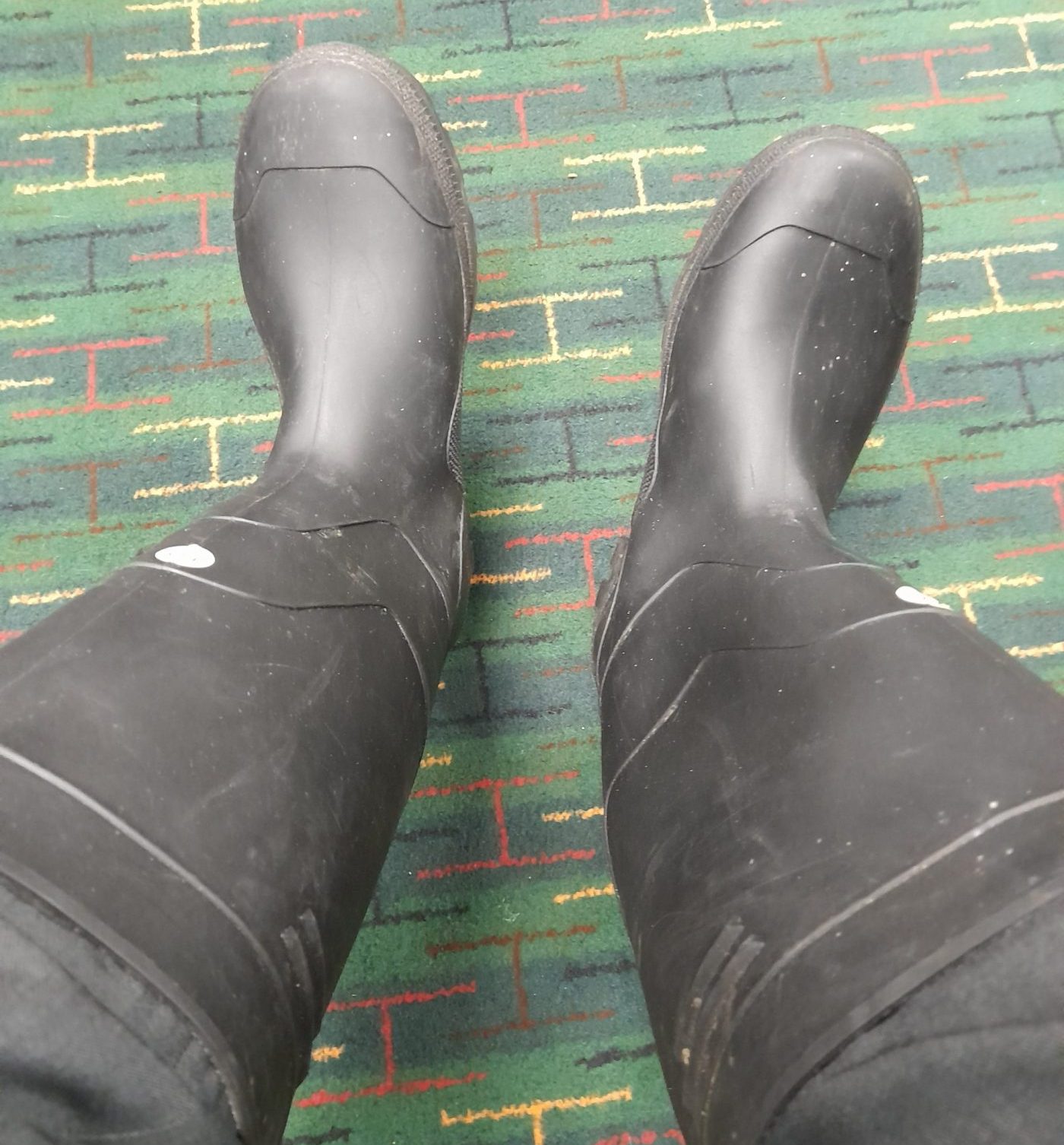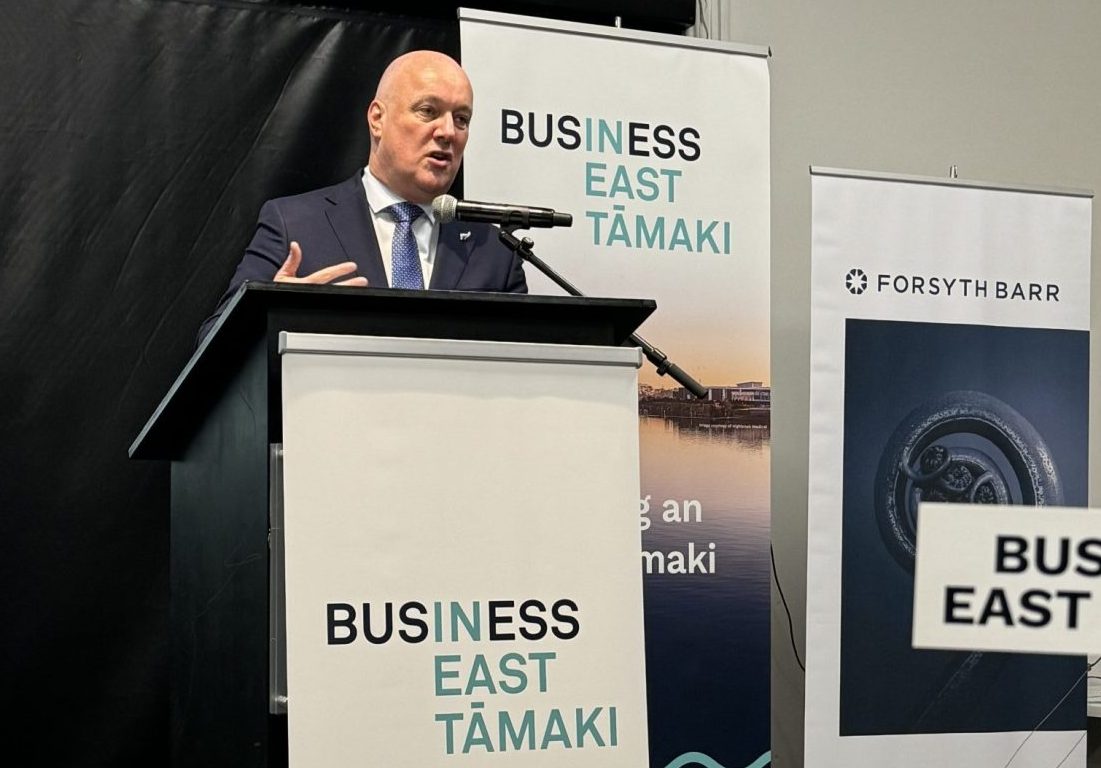
毋庸置疑,首相在去年大选中获胜,他对工作的信念和承诺是毋庸置疑的。
在克里斯托弗-卢克森的演讲中,以及与周五在帕库兰加联合橄榄球俱乐部(Pakuranga United Rugby Club)参加 "东塔玛基商业 "早餐会(Business East Tamaki's breakfast)、支持慈善机构 "我是希望"(I Am Hope)的 "胶鞋星期五"(Gumboot Friday)的与会者的非正式交谈中,他多次提到自己 "凌晨四点半就从床上蹦起来",随时准备解决当天的问题,力求让国家重回正轨,这也是他所在的国家党过去两年的口号。
毋庸置疑,这位植物园国会议员对国家领导人这一角色充满热情和活力,他在自己的选区内迅速就多个主题向乐于接受的商界领袖听众发表演说。
没有反对的声音,这些信息受到欢迎,尤其是来自过去四年经济困难的公司的信息。
卢克松思维敏捷,能就许多不同的话题作出详细而权威的回答,这是您对首相的期望,但这种能力通常是政治家在较长时间内培养出来的,而不是短短的四年。
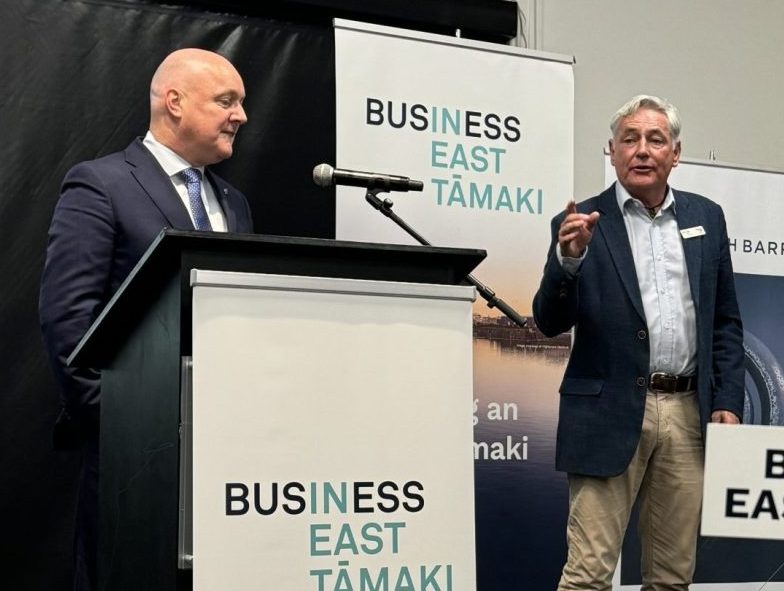
笔者已经很久没有在一个上午的约会中跟踪一位总理了,而卢克松在11月第一天的表现不逊于他的任何一位成就卓著的前任,即约翰-基和海伦-克拉克,我曾在过去的类似任务中对他们进行过近距离报道。
这两个人也有更长的时间来磨练自己,以准备担任这片土地上最重要的政治工作。
基和克拉克长期担任受欢迎的首相,而卢克松的不同之处在于,后者在个人层面上更自然自如。
他给人的印象是,他对与之交谈的人真正感兴趣,关注他们是谁,在做什么。给人的感觉是他喜欢人。
卢克松在开场白中说:"上任十二个月以来,我感到无比乐观,"他还说,他非常感谢有机会领导新西兰并 "有所作为"。
"这就是我从政的原因"
"我们拥有了不起的人民。我非常非常希望我们能够走到一起,我的目标是成为世界上最好的先进小国。
在过去的一年里,我们每天都能听到卢克松和他的政府同事们批评上一届工党领导的政府 "度过了一段令人难以置信的艰难时期",他们在经济上 "继承了一个烂摊子",但他对玉木商业东区听众的讲话并没有长时间停留在过去,而是坚定地着眼于未来。
他谈到,新西兰必须与历来保持良好外交关系并能开展贸易的国家,特别是印度洋-太平洋地区的国家,恢复并加强联系,这将为新西兰人带来更大的经济繁荣,特别是如果我们能向正在迅速发展的国家出口和销售更多的产品和服务,在不久的将来,这些国家将使人民摆脱温饱,成为消费水平更高的中产阶级。
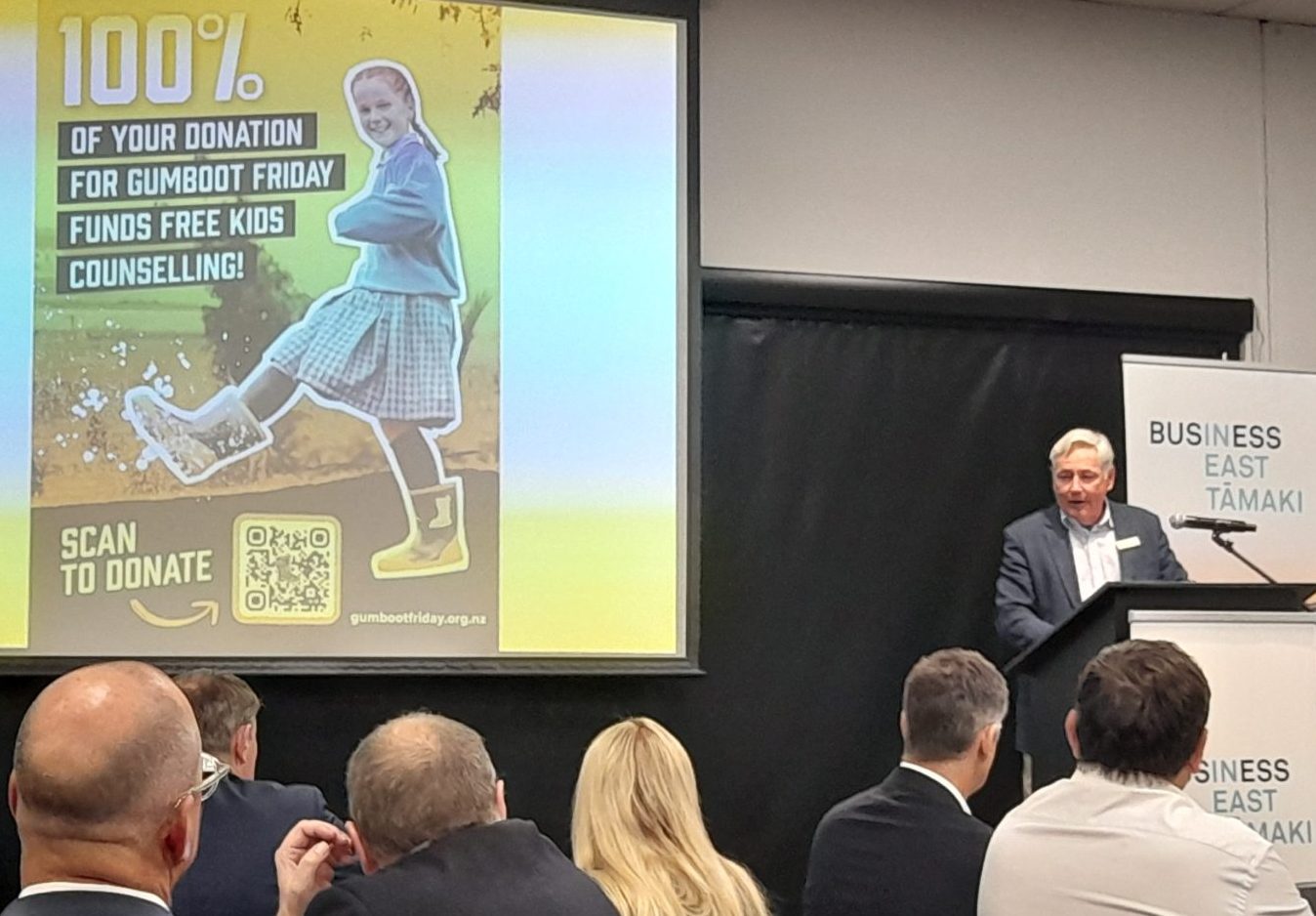
卢克松介绍说,新西兰 "拥有大量丰富的自然资源",如天然气和 "阳光、风和雨--大量的可再生能源",并希望利用这些资源,发展这些更清洁的部门。
他很高兴联合政府制定的 "财政纪律 "使 "通货膨胀率下降,从而降低了利率,使人们口袋里的钱更多了"。
但卢克森承认,他知道这仅仅是个开始,在创造更大的经济繁荣和稳定方面还有很多工作要做。
他还向商界领袖们介绍了政府通过 "回归基础 "改善教育、通过 "让学生重返校园 "提高学生出勤率以及通过通俗易懂的 "结构化识字和数学 "学习的承诺,这可能是因为他们中的大多数人都有在校就读的子女。
在回答与会者的问题之前,他还谈到了其他一些话题,如 "消除官僚主义中的繁文缛节",尤其是在国内建房 "太慢 "的情况下;在海外寻求投资,合作建设公共基础设施;以及他的同事、"万事通部长 "西蒙-布朗(Simeon Brown)的 "做好地方水务 "战略。
会场上的一个问题是关于美国即将举行的大选,卢克松以外交辞令回答了这个问题,但没有点总统候选人或政党的名字,而是着重谈了两国长期以来的友好关系--"无论谁是赢家"--以及新西兰正在改善其整体贸易状况--"我们的实际出口每年增长18%"。
下台后,卢克松花了一些时间与许多与会者道别--这体现了他对人们正在做的事情的兴趣--随后他前往位于东玉城的 TransNet 公司(一家大型、成功的能源行业企业)进行参观和会面。
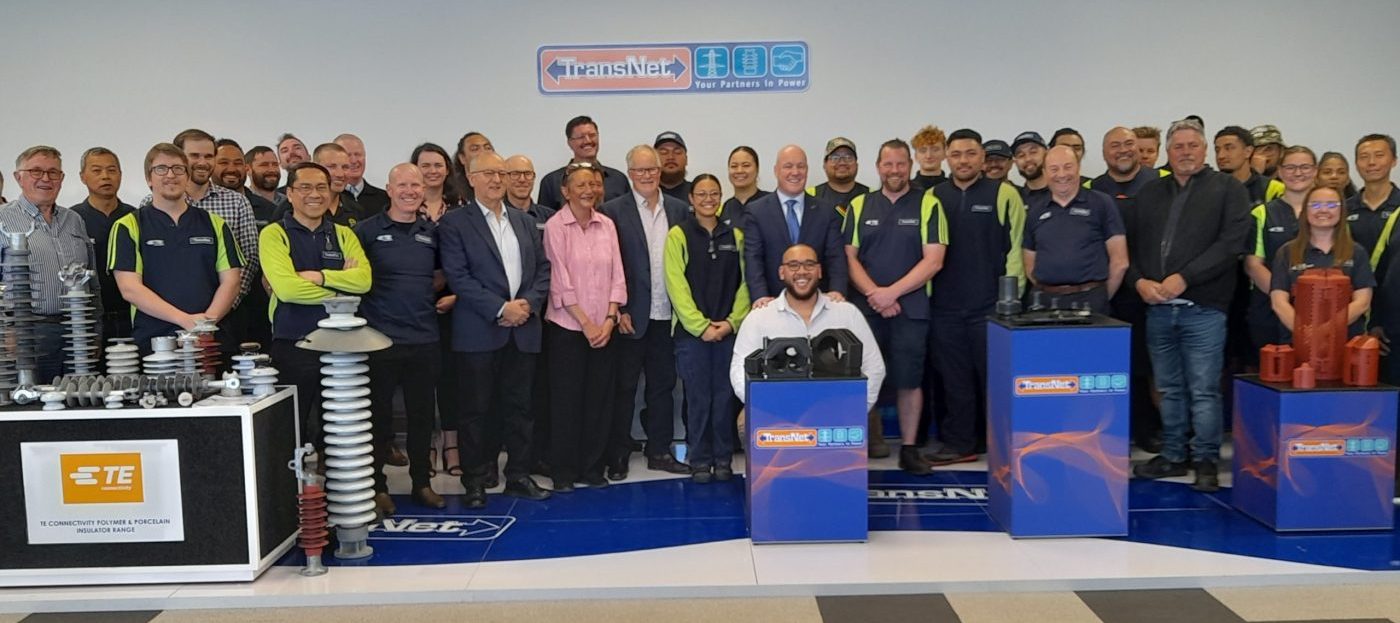
在那里,他还要面对全国新闻媒体的 "围追堵截",回答他们就当日话题提出的问题。周五的话题包括:"我是希望"(I Am Hope)的迈克-金(Mike King)本周早些时候关于酒精和毒品的不当言论、刚刚与海湾合作委员会签署的贸易协定,以及警方最近在奥克兰成功破获的特大大麻案,该案导致 11 名越南非法移民被捕并被驱逐出境。
当全国性的新闻记者按照各自新闻台的要求,继续就第一个和最后一个话题对卢克松进行提问时,《华盛顿邮报》的记者们却在继续提问。 时代 我问首相,他对那些穿着胶鞋在豪维克皮克顿街游行的人们有何看法,这些人是由 "我是希望 "慈善组织的当地代表、豪维克居民和前新西兰橄榄球联盟队长里奇-巴尼特(Richie Barnett)领导的。
"我只想对所有支持他们的人说声谢谢,"卢克森说。
东塔玛基(East Tamaki)商界对 "我是希望 "的支持给我留下了深刻印象。今天上午,我参加了一个有几百人参加的商业早餐会,很高兴看到许多中小型企业穿着胶鞋支持'我是希望',他们认识到心理健康是员工面临的一个问题,这真是太棒了"。
